On November 25, 1947 ten men were found guilty of contempt of Congress by the House Un-American Activities Committee.
♦
The House Un-American Activities Committee (HUAC), a committee of the U.S. House of Representatives, was formed in 1938 to investigate allegations of communist activity in the country. Using its power to subpoena, HUAC set its sights on the Hollywood community forcing “chosen” individuals who worked in the film industry to testify in high-profile hearings before Congress. The Committee’s “investigation” came to a head in 1947 when verdicts were handed down on ten men who refused to answer questions.
How “The Ten” came to be.
In May, 1947 members of HUAC held “closed” meetings at the Biltmore Hotel in Hollywood. Closed meetings everyone knew about – it’s difficult to keep secrets in Hollywood, just as is the case in Washington, DC. At those meetings the likes of director, Sam Wood, actors, Richard Arlen and Adolph Menjou and Lela Rogers (Ginger’s mother) stepped forward to divulge the names of suspected, imagined or actual Communists who lived and worked among them. As a result of those “secret” meetings, forty-three members of the Hollywood community received subpoenas during the month of September, 1947 requiring them to appear before HUAC the following month. Of those, thirty-nine were notified they’d be witnesses in the hearings that began on Monday, October 20, 1947. Among the thirty-nine were notables Robert Taylor, Gary Cooper, Robert Montgomery, Ronald Reagan, Jack Warner and Walt Disney.


Some of the thirty-nine were deemed “friendly” witnesses because they cooperated with the Committee. Nineteen, however, were deemed “unfriendly” because they openly voiced opposition to HUAC.
The “Unfriendly” Nineteen
- Alvah Bessie, screenwriter
- Herbert Biberman, screenwriter and director
- Bertolt Brecht, poet, playwright, and theater director
- Lester Cole, screenwriter
- Richard Collins, screenwriter
- Edward Dmytryk, director
- Gordon Kahn, screenwriter
- Howard Koch, screenwriter
- Ring Lardner Jr., screenwriter
- John Howard Lawson, screenwriter
- Albert Maltz, screenwriter
- Lewis Milestone, director
- Samuel Ornitz, screenwriter
- Larry Parks, actor
- Irving Pichel, director
- Robert Rossen, director
- Waldo Salt, screenwriter
- Adrian Scott, producer and screenwriter
- Dalton Trumbo, screenwriter
As you can see those are not names the general public would recognize, which is telling. By many accounts the list of nineteen is (and was) arbitrary, and served to showcase HUAC’s inconsistencies. For example, while the list of “friendly” witnesses included several women, the “unfriendly nineteen” were all men, which is strange when there were several well-known female Hollywood players HUAC reportedly had files on that were not spotlighted by the Committee in 1947. And why would the list consist of mostly unknowns? Very interesting to say the least.
Anyway – prior to the start of the hearings, HUAC had decided that each side – friendly and unfriendly – would give one week’s worth of testimony with the cooperative group going first. The hearings began with testimony by Warner Bros.’ Production Chief, Jack Warner. Warner was followed by Sam Wood, who was followed by the head of MGM, Louis B. Mayer, followed by writer, Ayn Rand, followed by Adolph Menjou, who was followed by other writers, a few ex-Communists, more writers, followed by Robert Taylor, a few political scientists, and so on. That first week concluded with the testimony of Walt Disney. It’s important to note that also included among the first week’s witnesses was the president of the Motion Picture Association of America, Eric Johnston who made it clear during his testimony that he would not hesitate to fire any “known” member of the Communist party as proved by the HUAC proceedings. With that statement the “all clear” for a blacklist was given and several of the other Hollywood honchos followed suit, making the same statement. And we now know that “proved” by the Committee could be anything from an admission of affiliation in a Communist organization to the mere mention of a name. Blacklisting had no rhyme or reason.
At the end of the first week of the hearings, HUAC Chairman, J. Parnell Thomas announced the second week would follow with mention of the order in which the “unfriendly” list of witnesses would testify. However, when October 27th came the order cited the previous Friday had disappeared and several of the “unfriendly” witnesses were called at the last moment, just prior to appearance on days when they were not expecting to testify. Writer, John Howard Lawson was one of those, discovering that Monday morning that he was to be the first witness. Lawson would become the first of the Hollywood Ten, not only refusing to answer the key question, but was also unable to hide his contempt for HUAC. Here is a clip of his testimony.
In the end, only eleven of the “unfriendly nineteen” were called to testify. The Committee would render judgement on ten because the eleventh was Bertolt Brecht who had only been in the country for a few years and had only one screen credit on his resume. HUAC simply couldn’t pin anything on him.
By the Wednesday of the second week, HUAC was eager to hurry the proceedings along. Press coverage and commentary was increasingly negative with equal coverage going to the Committee for the First Amendment, an action group formed in Spetember 1947 by actors in support of the Hollywood Ten, who descended on Washington D.C. in impressive numbers to protest the hearings. The members of the Committee for the First Amendment who made an appearance included Humphrey Bogart, Lauren Bacall and Danny Kaye.


Despite growing protests, however, the fact was that in three days’ time HUAC had what they deemed an acceptable number of Communists to prove the motion picture industry was putrid with anti-American sentiment. Ten men were recommended for and eventually received contempt citations for refusing to answer questions in reference to their official or casual affiliations and/or beliefs. Now HUAC could deliver an ultimatum to the entire industry:
“It is not necessary for the Chair to emphasize the harm which the motion-picture industry suffers from the presence within its ranks of known Communists…the industry should set about immediately to clean its house and not wait for public opinion to force it to do so.” – HUAC Chairman, Thomas
On November 25, 1947 – within a month of the conclusion of the hearings and upon the Committee’s contempt citations – the motion picture industry responded with the Waldorf Statement, named such because notable Hollywood leaders met at New York City’s Waldorf Astoria Hotel to come up with a solution to the Communist infiltration. The Waldorf Statement declared that Hollywood studios would not knowingly employ a Communist or a member of any group that advocated the violent overthrow of the United States government. Also noted was that they would not re-employ any of the Ten…”until he has purged himself of contempt and declared under oath that he is not a Communist.”
Listen to a brief report of the happenings here.
After two years of briefs, petitions and appeals, the Hollywood Ten were all serving their sentences by 1950.
The decision rendered against the ten men all but destroyed their lives and negatively affected many others in the Hollywood community who, by virtue of their names being mentioned alone, had their careers irrevocably changed by the widespread practice of blacklisting. Those blacklisted included talents from every arm of the entertainment industry – eventually more than 300 directors, actors, radio commentators and screenwriters were boycotted from working in the industry. More hearings and more names and more falsehoods and arbitrary justice would be rendered – official and unofficial – in years to come. More Americans would suffer discrimination under the guise of patriotism.
But it is the “Hollywood Ten” who still stand today as a symbol of the true fear of what those hearings stood for – a symbol that all of our basic rights could be so easily trampled on. Worse yet, is the fact that the entire affair was allowed to transpire. It’s true that the Ten all leaned left in their sympathies, but those spanned from sympathetic to activism. In other words, what can be said of at least half this country today. What they really all did have in common is that they refused to answer the questions posed by the House Un-American Activities Committee. It’s important to note that the Hollywood Ten agreed, after considerable discussion, to refuse to answer the questions on the basis of the First Amendment on the grounds that the investigation was a violation of their freedom of expression. They stood strong and together. And they paid the price.

The information provided above is from Radical Innocence: A Critical Study of the Hollywood Ten by Bernard F. Dick. Although the story of how the Ten came to be so is interesting, it has also been told and re-told numerous times and from several perspectives. Radical Innocence, however, focuses on the ten men, individuals with many career accomplishments. They were husbands and fathers and had successes well beyond the screens of Hollywood. Radical Innocence is well-researched and an interesting read. I am merely posting a photo in honor of each of these men on the anniversary of when “justice” was rendered upon them, Dick delves into their lives and careers – from their beginnings to a discussion of how they came to appear before HUAC. Each man’s story serves as a reminder that the group that came to be known as the Hollywood Ten was not about one happening to a group of men, but rather ten happenings to ten lives.
The Hollywood Ten
Samuel Ornitz – Writer
Lester Cole – Writer
John Howard Lawson – Writer
Herbert Biberman – Writer, Director, Producer
Albert Maltz – Writer
Alvah Bessie – Writer, Actor
Adrian Scott – Writer, Producer
Edward Dmytryk – Director, Editor
Ring Lardner, Jr. – Screenwriter
Dalton Trumbo – Writer, Actor, director
♦
It is no coincidence, by the way, that the majority of the Ten were writers in the industry as were the majority of the many others that were blacklisted. HUAC made it abundantly clear that the script was “the principal medium through which Communists have sought to inject their propaganda.”
♦
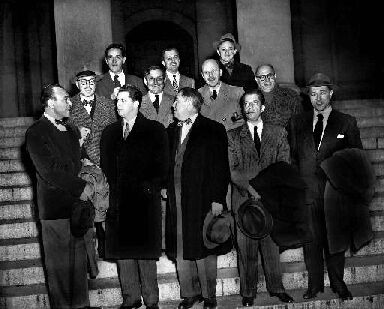
♦
Like all discriminatory actions, the Hollywood blacklist had no consistency even in the case of the Hollywood Ten. For instance in the case of Dalton Trumbo, it ended in 1960, for Ring Lardner, Jr. it ended in 1964; for Lester Cole it never ended at all. Even in 1965 Cole’s name could not be used on Born Free (1965); the screenplay for the film was credited to “Gerald L. C. Copley.” In the case of John Howard Lawson, considered the leader of the group, being blacklisted barely affected his career at all because he’d turned from writing movies to writing about them as early as 1949, with a series of books on film theory, social influences and the like. However, aside from Lawson, it’s impossible to say what we all lost on as a result of the years they were unable to practice their craft. Not to mention, again, the several hundreds who were also forced to turn their backs on their chosen careers.
♦
I feel about the HUAC hearing as I suspect most do today, they sicken me. They were nothing short of witch hunts. And I admit I find it quite easy to point the finger and judge any and all who willingly participated in the destruction of lives. However, I end this post with the enlightened words of one of the Hollywood Ten, Dalton Trumbo who spoke them in 1970, when accepting the Screen Writers Guild Laurel Award:
“The blacklist was a time of evil, and no one on either side who survived it came through untouched by evil. Caught in a situation that had passed beyond the control of mere individuals, each person reacted as his nature, his needs, his convictions, and his particular circumstances compelled him to. There was bad faith and good, honesty and dishonesty, courage and cowardice, selflessness and opportunism, wisdom and stupidity, good and bad on both sides. When you who are in your 40s or younger look back with curiosity on that dark time, as I think occasionally you should, it will do no good to search for villains or heroes or saints or devils because there were none; there were only victims. Some suffered less than others, some grew and some diminished, but in the final tally we were all victims because almost without exception each of us felt compelled to say things he did not want to say, to do things that he did not want to do, to deliver and receive wounds he truly did not want to exchange. That is why none of us – right, left, or center – emerged from that long nightmare without sin.”

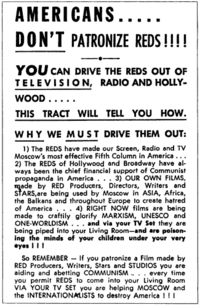
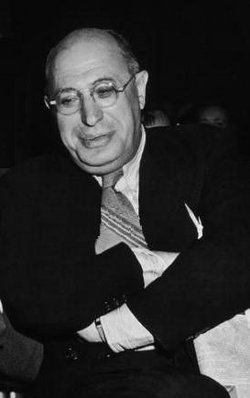
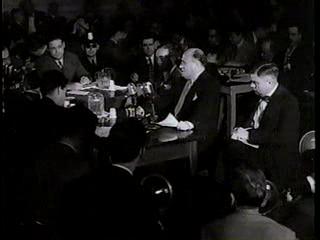
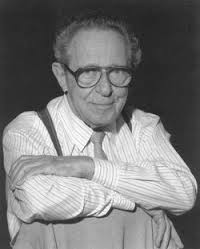
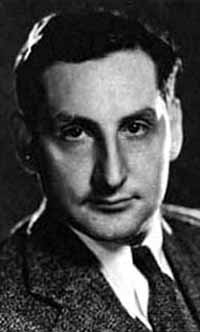



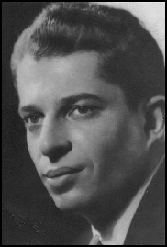
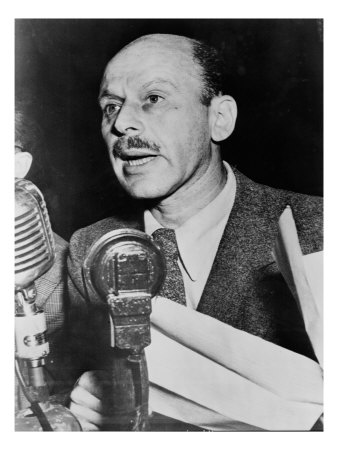

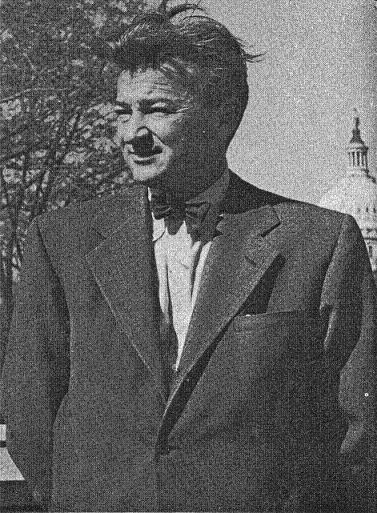
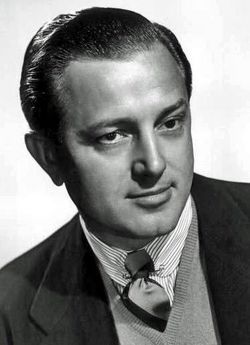


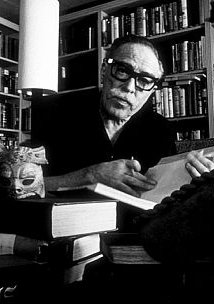

As based in fear, truly a dark time. Wonderful look at this history, Aurora. Hear, hear.
What gets lost in a lot of the writing about HUAC and the Hollywood Ten is that these men were apologists for the Soviet Union and supported Stalin’s Moscow trials and engaged in a kind of intellectual thuggery that I cannot admire. They made it very hard for others on the left who saw, especially, after the Pact, what a pack of lies these men had promulgated. They were not honest about their politics, and yet they expected people on the left to defend them. Please don’t construe this as a defense of HUAC. I just wish this martyrdom of the Hollywood Ten would stop. I spend a chapter on HUAC in my Dana Andrews biography. Hollywood producers and directors caved very early to HUAC. Even Humphrey Bogart went on Hedda Hopper’s show to renounce his earlier support of the Hollywood Ten. Hollywood still has not produced a film that does anything like justice to the complexity of the period.
I appreciate that, Carl. I can say little with certainty but, coming from a communist country and knowing what my own family was put through, what I can say for certain is that in the matter of politics and beliefs there are no absolutes. I mark this anniversary for which the Ten are symbols
of the HUAC travesty. That remains true, and I know you agree, regardless of the degree of fault that should be placed on each of them. But it doesn’t negate that fault. That’s one of the reasons I wanted to end with the Trumbo quote because it states exactly that – that many on all sides were culpable, as is the case in most things in life.
Thanks so much for commenting. And again, I can’t wait to red those specifics/details in your book.
Aurora
ONE MORE THING – Bernard Dick’s book doesn’t tell the story of the lives of these men as if they were martyrs in any way. 🙂
Aurora – what a great piece of writing. You know, I always read about that period as though it was something that could never happen again. But now, I’m not so sure. Very sad days, indeed.
So true! It is damn scary! Thanks so much for stopping in, Marsha.
Aurora
Terrific post.
A frightening time of mass hysteria.
Such a shame the Committee for the First Amendment didn’t last.
I think I need to read “Radical Innocence” because the more I learn about these hearings, the less I understand. I thought your first commenter made some interesting points, so I have to investigate this more for myself.
Thanks for this really interesting post. 🙂
Thanks for stopping in, Ruth. Radical Innocence discusses the individual lives of the TEN, but doesn’t delve into the entire HUAC affairs except in the context of the TEN.
What Carl Rollyson mentioned is beyond interesting! The bottom line is that although – to me – the TEN were victims of HUAC they were not innocents by any means. And reportedly Bogie later admitted to having been wrong to support them. That I can’t see, but do plan to look into what he said – only because I’d think as a liberal Bogie would still have been against HUAC. But it IS all very complicated – there is no black/white where people’s beliefs are concerned.
As far as lives being destroyed by HUAC, they were.
Aurora
This whole subject is endlessly interesting and far too complex to cover in just a blog, but I thought this post an excellent starting off place for people who are not aware of it – any everybody should be, especially those who don’t think it could ever happen again! I can also recommend “The Hollywood Writers’ Wars” by Nancy Lynn Schwartz,
Thanks for stopping in, Martin. I agree. This subject is fascinating and complex and something everyone should be familiar with. Such ugly times that simmer just under the surface today. Or so it seems.
I noted your recommendation!
Aurora
posted lyrics to a public domain protest folk song from the 1970’s about the Hollywood Ten, “The Hollywood Ten, in 2007 that might interest readers, at following blog link: http://bfeldman68.blogspot.com/2007/07/hollywood-ten.html